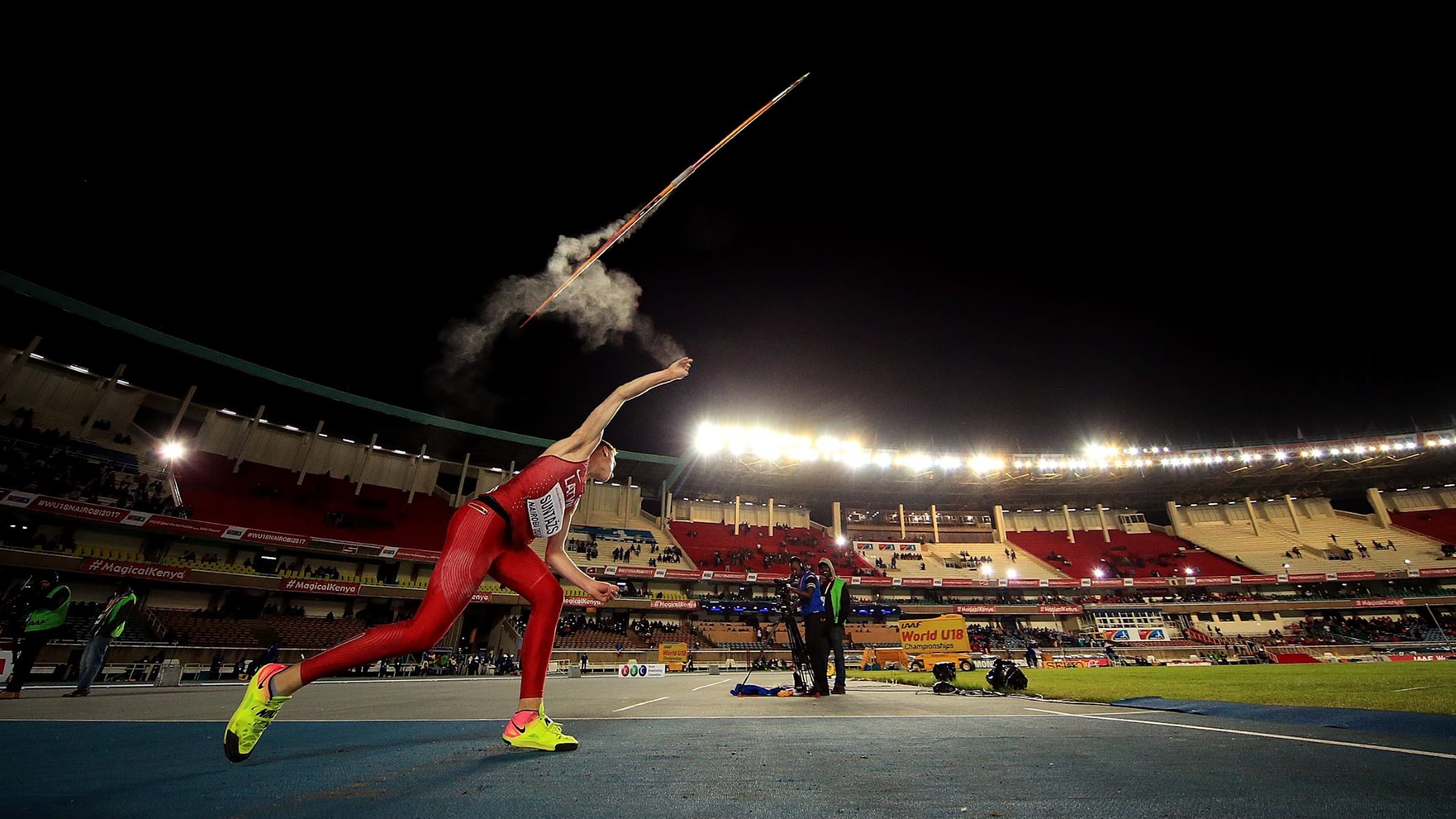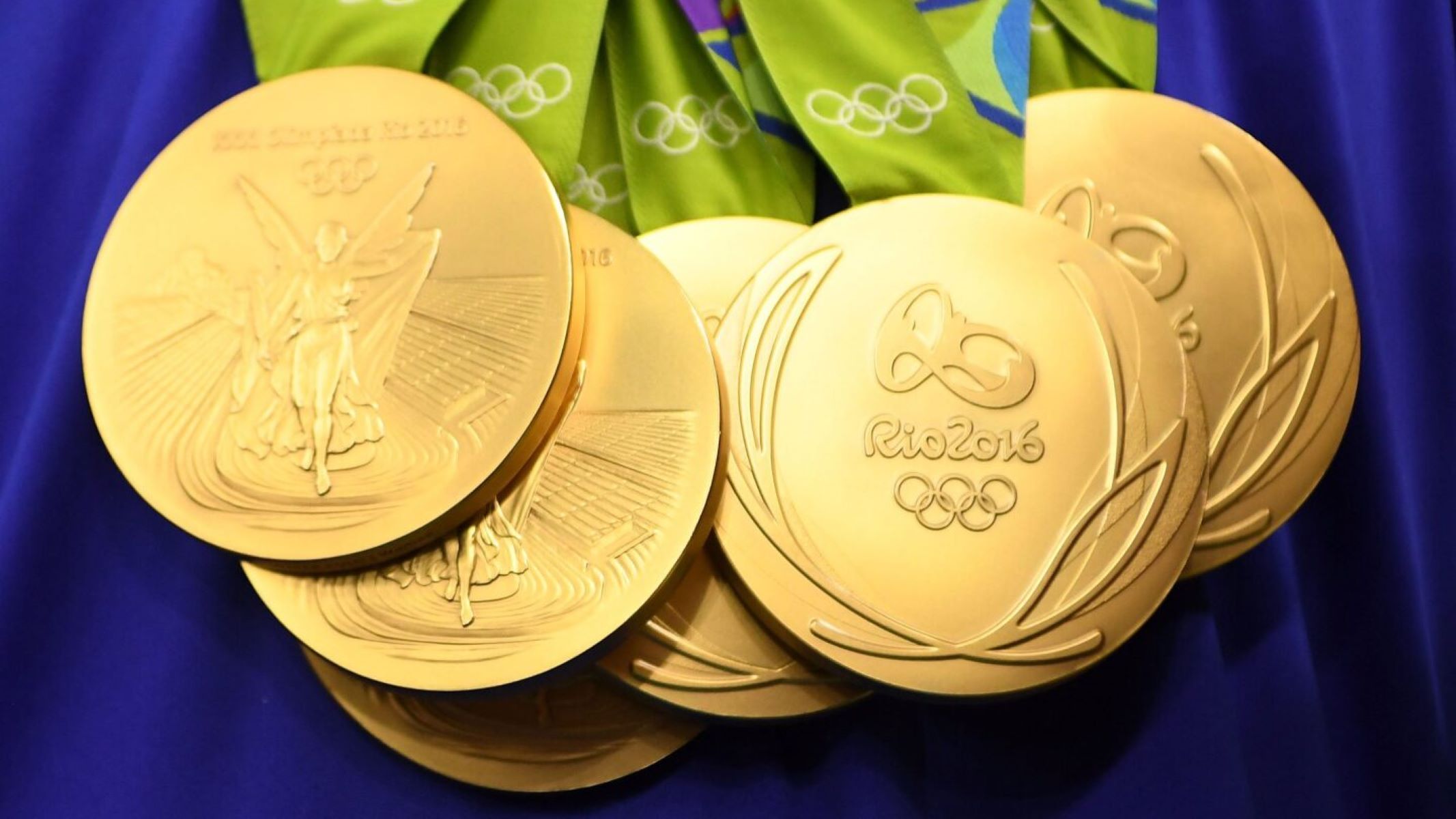

Featured
How Nike Won The Cultural Marathon
Modified: May 22, 2024
Discover how Nike became the cultural icon of the marathon world with our featured story on their journey to success.
Introduction
Nike, the iconic athletic brand, has established itself as a powerhouse in the sports and fashion industry. With its stylish and innovative products, Nike has captured the hearts of athletes and enthusiasts around the world. However, Nike’s success goes beyond the realm of sports. It has become a cultural phenomenon, influencing not just the way we dress and perform, but also the way we think and express ourselves.
From its humble beginnings as a small athletic shoe company in the 1960s, Nike has evolved into a global brand that resonates with people from all walks of life. With a commitment to excellence and a focus on creativity, Nike has transformed the way we perceive athleticism and fashion. The brand’s mantra, “Just Do It,” has become a rallying cry for those pushing their limits and striving for greatness.
Throughout its history, Nike has been at the forefront of cultural change. The brand has embraced diversity and inclusivity, challenging societal norms and breaking down barriers. Nike understands that to truly connect with its audience, it must celebrate the uniqueness of individuals and foster a sense of belonging.
Furthermore, Nike has forged collaborations and partnerships with athletes, artists, and designers who share its vision. By teaming up with cultural icons and influencers, Nike has been able to tap into different spheres of creativity and bring fresh perspectives to its products and campaigns.
As a result of its efforts, Nike has left an indelible mark on popular culture. Its iconic Swoosh logo has become instantly recognizable, symbolizing excellence, athleticism, and style. Nike’s presence can be seen not only on the courts and fields but also on the streets, worn by individuals who want to make a statement and express their passion for sports and fashion.
This article delves into Nike’s journey from a small shoemaker to a global cultural phenomenon. We will explore Nike’s embrace of diversity and inclusivity, its collaborations and partnerships, its impact on pop culture, and its approach to marketing. Join us as we uncover how Nike has won the cultural marathon.
Nike’s Origins and Evolution
Nike’s story begins in 1964 when two visionaries, Bill Bowerman and Phil Knight, came together to revolutionize athletic footwear. As a track and field coach, Bowerman had a keen eye for innovation, while Knight possessed a deep passion for running. Together, they founded Blue Ribbon Sports, which would later become Nike.
In its early days, Nike focused on importing and distributing shoes from other manufacturers. However, Bowerman’s desire to create lighter and better-performing shoes led him to experiment with different designs and materials. This drive for innovation laid the foundation for Nike’s future success.
It was in 1971 that the Nike we know today was born. Carolyn Davidson, a graphic design student, was commissioned to create a logo for the brand. She created the iconic Swoosh, a simple yet dynamic symbol that perfectly encapsulated Nike’s commitment to speed and movement.
Throughout the 1970s and 1980s, Nike continued to push boundaries in the athletic shoe industry. It introduced the “waffle” sole, an innovative design that provided better traction and grip. This was followed by the release of the Air Max, the first shoe to feature visible air cushioning, which revolutionized comfort and performance.
One key turning point for Nike came in the early 1980s when the company signed a young basketball player named Michael Jordan. The launch of the Air Jordan line in 1985 sparked a cultural phenomenon, making Nike a symbol of urban and street fashion. The partnership with Jordan not only elevated Nike’s status in the basketball world but also solidified its influence on popular culture.
As the years went by, Nike expanded its product range to include apparel, accessories, and sporting equipment. The brand’s commitment to innovation remained unwavering, leading to the development of technologies like Flyknit, which revolutionized shoe construction, and Dri-FIT, which created moisture-wicking fabrics for athletes.
Today, Nike is recognized as a global leader in athletic wear and is known for its cutting-edge designs, superior performance, and timeless style. It continues to evolve and adapt to changing consumer demands, consistently pushing boundaries and setting new standards in the industry.
In the next sections, we will further explore Nike’s impact on culture, its embrace of diversity and inclusion, its collaborations and partnerships, and its innovative approach to marketing.
Embracing Diversity and Inclusion
Nike has been at the forefront of celebrating diversity and promoting inclusivity in the sports and fashion industry. The brand understands the importance of representation and the power of inclusiveness in connecting with its global audience.
One of Nike’s notable initiatives in this realm is the “Equality” campaign, which was launched in 2017. This campaign puts a spotlight on social justice issues and aims to inspire people to take action and create positive change. Nike uses its platform to amplify the voices of marginalized communities and ignite conversations surrounding topics such as racial equality, gender equality, and LGBTQ+ rights.
Furthermore, Nike embraces diversity by featuring athletes from various backgrounds and cultures in its marketing campaigns. By showcasing athletes of different races, ethnicities, genders, and body types, Nike sends a powerful message that there is no one-size-fits-all definition of an athlete. The brand encourages individuals to embrace their unique qualities and pursue their passions, regardless of societal norms or stereotypes.
Nike has also made significant strides in developing inclusive product lines. The brand has expanded its size offerings to cater to a wider range of body types, ensuring that athletes of all shapes and sizes can find the perfect fit. In addition, Nike has collaborated with adaptive athletes to create innovative designs for individuals with disabilities, further reinforcing the brand’s commitment to inclusivity.
Beyond its product offerings, Nike actively supports organizations and initiatives that promote diversity and inclusion. The brand has partnered with numerous nonprofit organizations and advocacy groups to provide resources and create opportunities for underrepresented communities. Nike’s support extends beyond just financial contributions; the brand actively engages in community events, workshops, and mentorship programs to empower individuals and foster inclusivity in sports and beyond.
Nike’s commitment to diversity and inclusion is not just a marketing strategy; it is deeply embedded in the company’s core values and culture. Nike recognizes that by embracing different perspectives and experiences, it can better serve its diverse customer base and contribute to a more inclusive society.
In the next sections, we will explore how Nike’s collaborations and partnerships have further strengthened its impact on culture, as well as its influence on sports and athletes.
Collaborations and Partnerships
Nike’s ability to consistently push boundaries and stay culturally relevant can be attributed in part to its strategic collaborations and partnerships. The brand has consistently sought out collaborations with influential athletes, artists, and designers to create unique and impactful products that resonate with consumers.
One of Nike’s most notable partnerships is with legendary basketball player Michael Jordan. The Air Jordan line, a collaboration between Nike and Jordan, revolutionized the sneaker industry and established a new standard for athlete endorsements. The partnership not only propelled Nike to new heights in the basketball world but also solidified its position as a leading brand in urban and street fashion.
In addition to Jordan, Nike has partnered with a wide range of athletes from various sports, including Serena Williams, Cristiano Ronaldo, and LeBron James. These collaborations not only showcase Nike’s commitment to supporting and empowering athletes but also allow the brand to tap into different sports and connect with diverse fan bases.
Nike’s collaborations extend beyond the realm of sports. The brand has also joined forces with celebrated artists and designers, such as Virgil Abloh and Travis Scott, to create limited-edition collections that blend sportswear with high fashion and streetwear. These collaborations have not only elevated Nike’s brand image but have also generated significant buzz and anticipation among consumers.
Furthermore, Nike has embraced partnerships with organizations and causes that align with its values. For example, the brand has collaborated with the Women’s National Basketball Association (WNBA) to bolster support for women’s sports. Nike’s partnership with Colin Kaepernick, the former NFL player known for his activism, sparked both controversy and admiration, emphasizing the brand’s commitment to social justice and promoting a message of equality.
By collaborating with athletes, artists, and organizations, Nike leverages the unique talents and perspectives of its partners to create products and campaigns that resonate with consumers on a deeper level. These partnerships not only drive brand awareness but also contribute to the cultural significance and influence of Nike as a whole.
In the next sections, we will explore how Nike’s impact on pop culture has solidified its position as a cultural phenomenon and the brand’s approach to marketing that further fuels its success.
Nike’s Impact on Pop Culture
Nike has undeniably left a profound impact on pop culture, permeating various aspects of our daily lives. The brand’s iconic Swoosh logo and innovative products have become ubiquitously recognized symbols of style, athleticism, and self-expression.
One of the key ways Nike has influenced pop culture is through its collaborations with artists and designers. By partnering with influential figures and tastemakers, Nike has elevated its brand image and expanded its influence beyond the realms of sports and fitness. Limited-edition releases and special collections, such as the Nike x Off-White collaboration by Virgil Abloh, have generated immense buzz and captivated the attention of fashion enthusiasts and sneakerheads around the world.
Fashion and streetwear culture have been deeply impacted by Nike’s presence. The brand’s signature sneakers, such as the Air Jordan line and the Air Max series, have become coveted fashion staples, not just among athletes but among fashion-forward individuals. Nike’s ability to seamlessly blend performance and style has made its products a symbol of status, self-expression, and cultural relevance.
Moreover, Nike’s marketing campaigns have pushed boundaries and sparked conversations within popular culture. The brand has a history of creating memorable and thought-provoking advertisements, from the iconic “Just Do It” campaign to the recent “Dream Crazy” commercial featuring Colin Kaepernick. Nike has consistently used its platform to address social issues, inspire individuals, and challenge societal norms, cementing its position as a brand that stands for something more than just athletic apparel.
Nike’s impact on pop culture goes beyond the world of fashion and advertising. The brand has also made a significant impact in the music industry, with countless artists referencing Nike in their lyrics and incorporating Nike apparel into their style. Nike has become a symbol of authenticity, success, and personal striving, resonating with musicians who share these values with the brand.
The influence of Nike can also be seen in the rise of sports as a cultural phenomenon. Through its sponsorships and partnerships with athletes, Nike has played a vital role in promoting and popularizing various sports. The brand’s association with high-profile athletes like LeBron James, Cristiano Ronaldo, and Serena Williams has made Nike a symbol of excellence and inspiration, reinforcing its cultural significance.
In summary, Nike’s impact on pop culture lies in its ability to seamlessly blend sports, fashion, and social issues. The brand’s collaborations, marketing campaigns, and iconic products have solidified Nike’s position as a cultural phenomenon and a driving force in shaping popular culture.
Nike’s Influence on Sports and Athletes
Nike has had a profound influence on the world of sports and athletes, revolutionizing the way athletes perform, train, and express themselves. The brand’s commitment to innovation and excellence has not only elevated the performance of athletes but has also inspired a new generation of sports enthusiasts.
One of Nike’s key contributions to sports is its dedication to developing cutting-edge technologies and materials. The brand has consistently pushed the boundaries of athletic footwear, introducing innovations like Air cushioning, Flyknit construction, and VaporMax technology. These advancements have helped athletes achieve optimal performance, providing them with enhanced comfort, support, and responsiveness.
Nike has also played a significant role in supporting and empowering athletes across various sports. The brand’s sponsorships and partnerships provide athletes with the financial means and resources needed to pursue their passions and excel in their respective fields. Nike’s commitment to inclusivity is evident in its support of female athletes, advocating for gender equality in sports and promoting equal recognition and opportunities.
Moreover, Nike has been instrumental in shaping the culture and identity of sports. Through its collaborations with athletes, the brand has transformed the way athletes are perceived, breaking stereotypes and celebrating individuality. Nike recognizes that athletes are more than just competitors; they are trailblazers, influencers, and agents of change.
Nike’s influence extends beyond the realm of performance and into the realms of style and self-expression. Through its design collaborations with athletes and artists, Nike has transformed sportswear into a form of fashion and self-identity. Athletes have become style icons, showcasing their unique personalities and passions through their choice of Nike apparel.
Additionally, Nike has been at the forefront of championing social causes within the world of sports. The brand has used its platform to raise awareness about important issues and drive positive change. From supporting LGBTQ+ rights to advocating for racial equality, Nike has demonstrated a commitment to making sports a more inclusive and equitable space.
Ultimately, Nike’s influence on sports and athletes is the result of its dedication to continuous innovation, support for athletes, celebration of individuality, and commitment to social impact. The brand’s impact can be seen in the performance of athletes, the culture of sports, and the broader conversations surrounding sports and athleticism.
In the next section, we will explore Nike’s approach to marketing and how it has contributed to the brand’s success and popularity.
Nike’s Approach to Marketing
Nike’s approach to marketing has played a pivotal role in solidifying its success and maintaining its status as a global brand. The company has consistently pushed boundaries and embraced innovative strategies to connect with its target audience, create brand loyalty, and drive sales.
One of Nike’s key marketing principles is focusing on storytelling. The brand recognizes the power of narratives and uses them to captivate and inspire its audience. Nike’s advertisements often go beyond promoting products; they tell compelling stories that resonate with viewers on an emotional level. These stories highlight the determination, resilience, and triumph of athletes, appealing to the universal desire for personal growth and achievement.
Furthermore, Nike has a knack for spotting cultural moments and seizing them to create impactful marketing campaigns. Whether it’s a major sports event like the Olympics or a social movement gaining momentum, Nike has consistently found ways to align its brand with relevant cultural themes. By doing so, Nike taps into the collective consciousness and leverages these moments to amplify its message and brand reach.
Another aspect of Nike’s marketing strategy is its commitment to authenticity. The brand recognizes that consumers crave genuineness and transparency. Nike’s focus on real athletes and real stories, rather than relying solely on celebrity endorsements, allows the brand to establish a genuine connection with its audience. This authenticity resonates with consumers, as they feel a stronger emotional connection to the brand and the values it represents.
Moreover, Nike has capitalized on the power of social media to engage with consumers in a more direct and interactive way. The brand leverages its strong social media presence to foster a sense of community, encouraging athletes and fans to share their stories and experiences. Nike’s social media campaigns often go viral, sparking conversations and generating buzz among online communities.
Additionally, Nike has shown a willingness to tackle controversial topics and take a stance on social issues. The brand understands that by aligning itself with causes and movements that resonate with its target audience, it can deepen its connection with consumers. Nike’s “Dream Crazy” campaign featuring Colin Kaepernick, for example, generated significant attention and sparked a wider discussion about activism and social justice.
Lastly, Nike’s collaborations and partnerships, as mentioned earlier, are a crucial component of its marketing strategy. By collaborating with influential athletes, artists, and designers, Nike not only taps into their fan base but also gains additional exposure through their reach and influence. These collaborations enhance Nike’s relevance and cultural significance, elevating the brand’s appeal among various demographics.
In summary, Nike’s approach to marketing is characterized by storytelling, cultural relevance, authenticity, social media engagement, addressing social issues, and strategic partnerships. These elements work together to create a powerful and impactful marketing strategy that has propelled Nike to the forefront of the industry.
Conclusion
In the world of sports and fashion, Nike has emerged as a true cultural phenomenon. From its humble beginnings as a small athletic shoe company to its position as a global brand, Nike has revolutionized the industry with its innovative products, commitment to diversity and inclusion, strategic collaborations, and impactful marketing strategies.
Nike’s influence extends far beyond the realms of sports and fashion. The brand has successfully ingrained itself in popular culture, becoming a symbol of style, athleticism, and self-expression. Its iconic Swoosh logo and innovative products have solidified Nike’s position as a trailblazer, inspiring athletes and individuals to surpass their limits and embrace their unique qualities.
By embracing diversity and celebrating inclusivity, Nike has created a brand that resonates with people from all walks of life. The brand’s collaborations and partnerships have further strengthened its cultural impact, giving rise to unique and coveted product offerings that capture the attention of consumers and shape the conversation in the industry.
Nike’s marketing approach is characterized by compelling storytelling, cultural relevance, authenticity, social media engagement, and a willingness to address social issues. These elements have contributed to Nike’s success in connecting with its target audience and creating a strong and loyal fan base.
As Nike continues to innovate and adapt, its impact on sports, athletes, and popular culture will undoubtedly continue to grow. The brand’s unwavering commitment to excellence, creativity, and social impact sets it apart and ensures its enduring relevance in the ever-evolving landscape of sports and fashion.
Nike’s journey, from its origins as a small athletic shoe company to its current status as a global cultural phenomenon, is a testament to the power of innovation, inclusivity, and storytelling. Nike has not only shaped the industry but has also inspired individuals to dream big, overcome obstacles, and make a difference. It has won the cultural marathon with its unwavering determination, bold vision, and unmatched dedication to celebrating the spirit of athletes and the limitless potential of human achievement.









